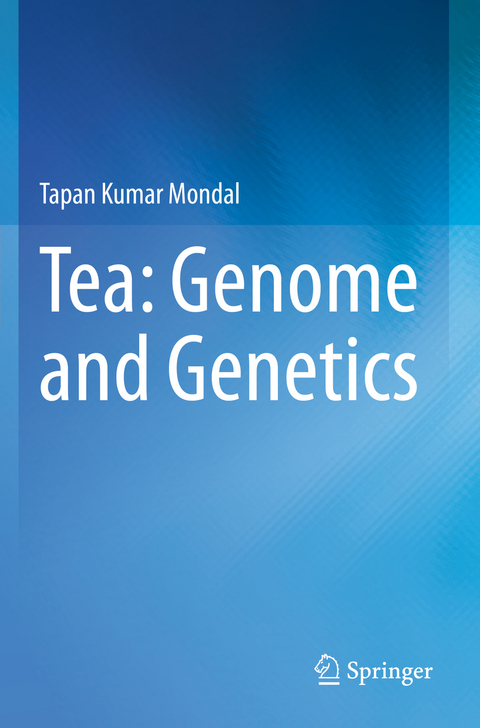
Tea: Genome and Genetics
Springer Verlag, Singapore
978-981-15-8870-9 (ISBN)
In conclusion, the book collates the work on tea plantations so far, identified the problems, analyzes the gaps on breeding and biotechnological works of tea as well as its wild species and discusses the future scopes as conclusion. The book aims to cover all latest information till june, 2020 . It will be useful resource for post-graduate, doctoral as well post-doctoral students working on tea as well as other woody plants. This will also be useful for the scientists working in the areas of life sciences, genomics, biotechnology and molecular biology.
Dr. Tapan Kumar Mondal joined at Institute of Himalayan Bioresource Technology (CSIR), Himachal Pradesh, India, for his Ph.D degree which he completed in 1998. After that, he served as Deputy Manager, Research and Development Department, Tata Tatley Ltd, Munnar, Kerala till March, 2002. Since then up to 2010, he further served as Assistant Professor at North Bengal Agricultural University, Cooch Behar, West Bengal. Later in February 2010, he joined as Senior Scientist (Plant Biotechnology) at National Bureau of Plant Genetic Resource (ICAR), New Delhi. From 2016, he is working as Principal Scientist at ICAR-National Institute for Plant Biotechnology, New Delhi. He carried out his Post Doctoral training with Prof. J. K. Zhu of University of California, Riverside, USA, on ‘Regulation of small RNA under cold stress of Arabidopsis’ and later worked at University of Illinois, Urbana-Champaign, USA, on ‘Identification of nitrogen use efficient genes of maize by RNAseq’. Dr. Mondal has significantly contributed in various areas of biotechnology and genetic resource management of tea. His work leads several maiden findings in tea such as in vivo somatic embryogenesis, discovery of miRNA, lncRNA, cirRNA of tea for the first time, development the first transgenic tea plants. His team decoded the mitochondrial genome and for the first time in tea. Recently his team did the genome sequence of Indian Tea cultivar TV-1. He has also submitted several genome and gene sequences of tea at NCBI and also published more than 60 publications in this area. He was PI of various projects of tea biotechnology funded by DBT, DST, ICAR and Tea Board, India. He is the recipient of University merit scholarship, scholarship from Indian Tea association, ICAR JRF, DBT fellowship, CSIR fellowship and life member of several professional societies. He has written one book tea biotechnology and edited one book on Wild Oryza Genome. His team has developed several database on tea and developed software for gene expression of tea. He also bagged ‘Young scientist award’ by Korean Society of Tea Science in 2003 and Japan Tea Science Society in 2004.
Chapter 1. Introduction.- Chapter 2. Genetics and breeding.- Chapter 3. Micropropagation.- Chapter 4. Somatic embryogenesis and alternative in vitro techniques.- Chapter 5. Genetic transformation.- Chapter 6. Molecular marker.- Chapter 7. Stress physiology.- Chapter 8. Functional genomics.
| Erscheinungsdatum | 04.01.2022 |
|---|---|
| Zusatzinfo | 8 Illustrations, color; 9 Illustrations, black and white; XXIII, 312 p. 17 illus., 8 illus. in color. |
| Verlagsort | Singapore |
| Sprache | englisch |
| Maße | 155 x 235 mm |
| Themenwelt | Naturwissenschaften ► Biologie ► Botanik |
| Naturwissenschaften ► Biologie ► Genetik / Molekularbiologie | |
| Schlagworte | Breeding • Tea Biotechnology • Tea Genome • Tea Research • Transgenics |
| ISBN-10 | 981-15-8870-8 / 9811588708 |
| ISBN-13 | 978-981-15-8870-9 / 9789811588709 |
| Zustand | Neuware |
| Haben Sie eine Frage zum Produkt? |
aus dem Bereich


